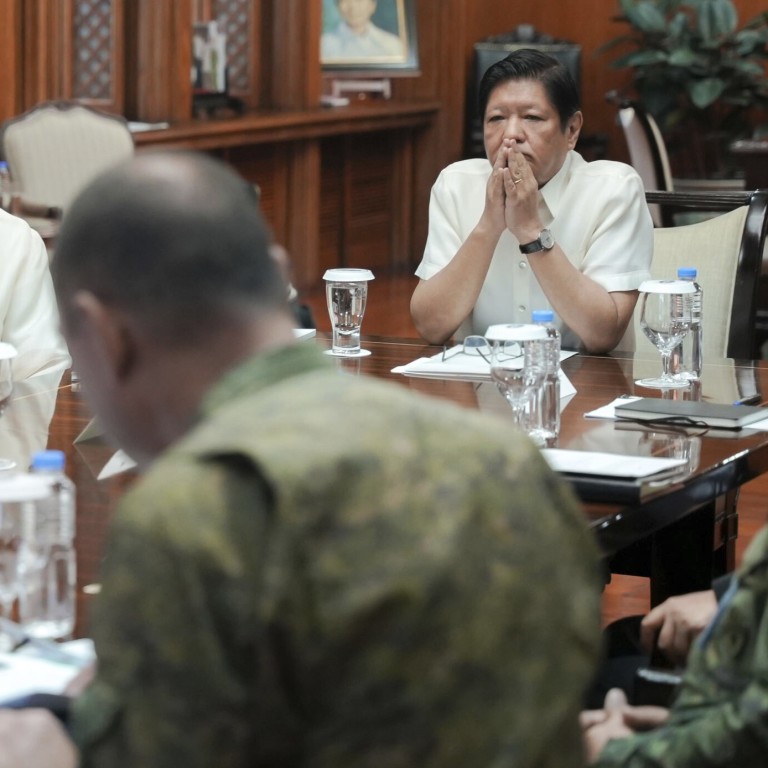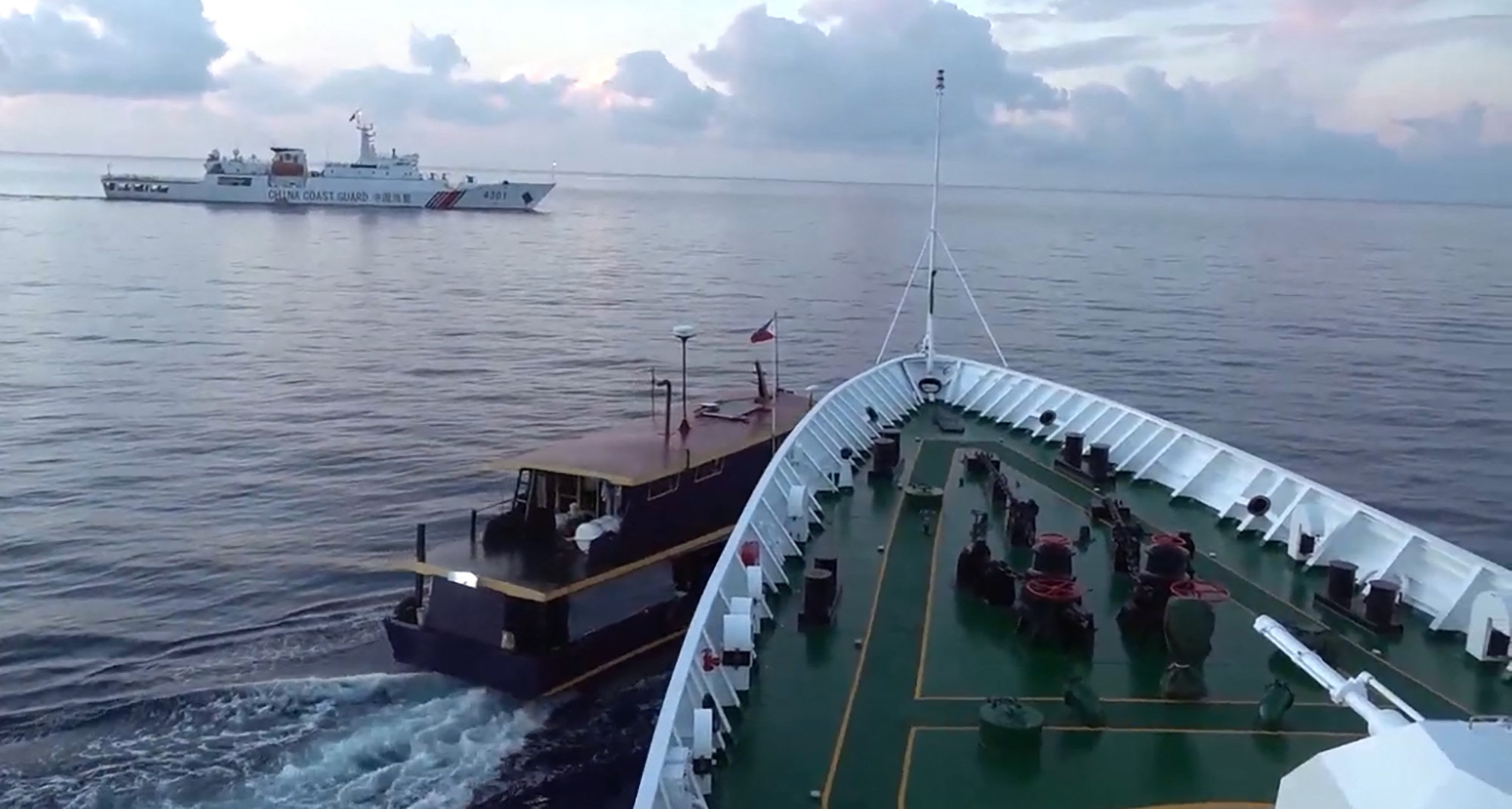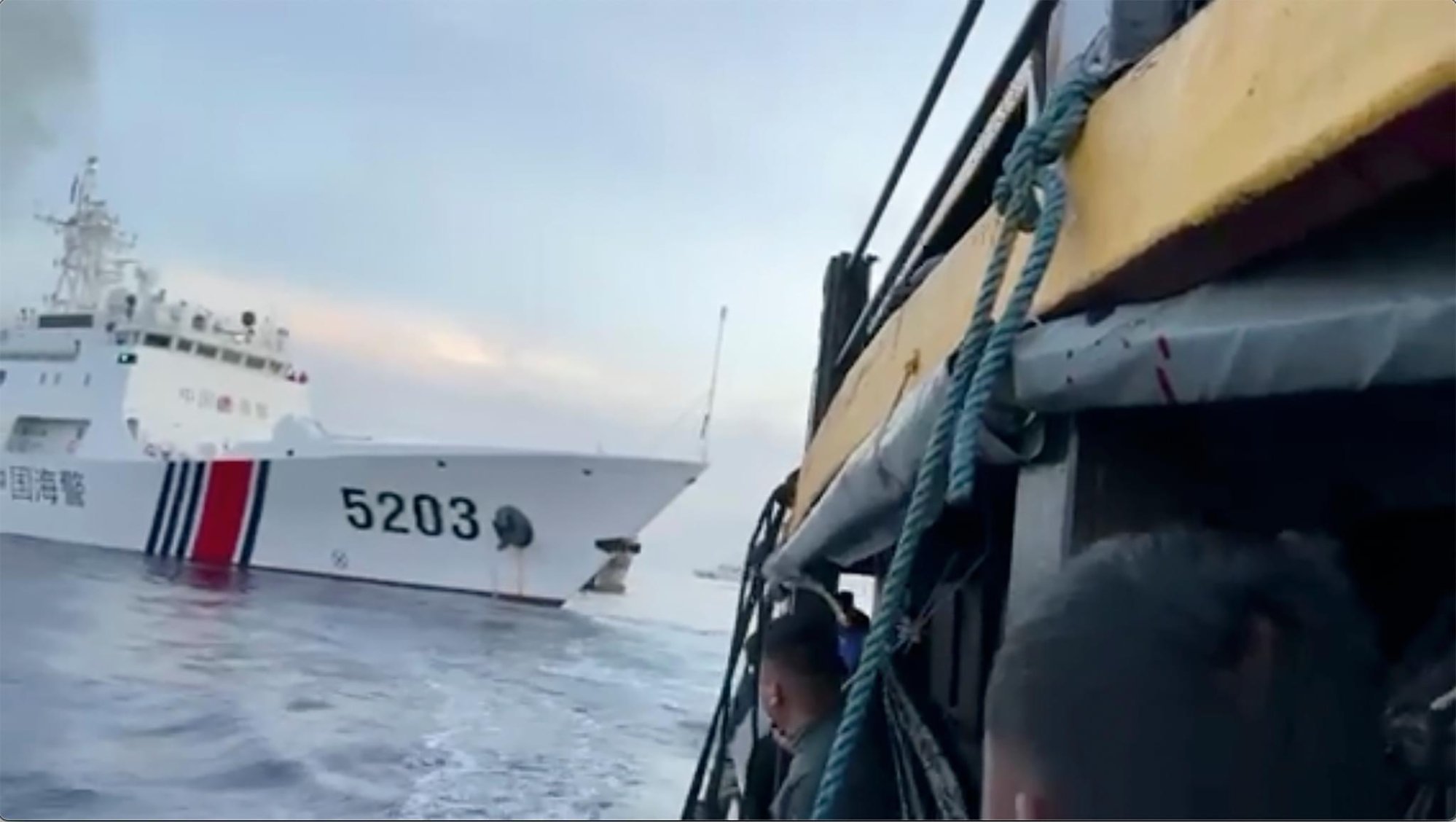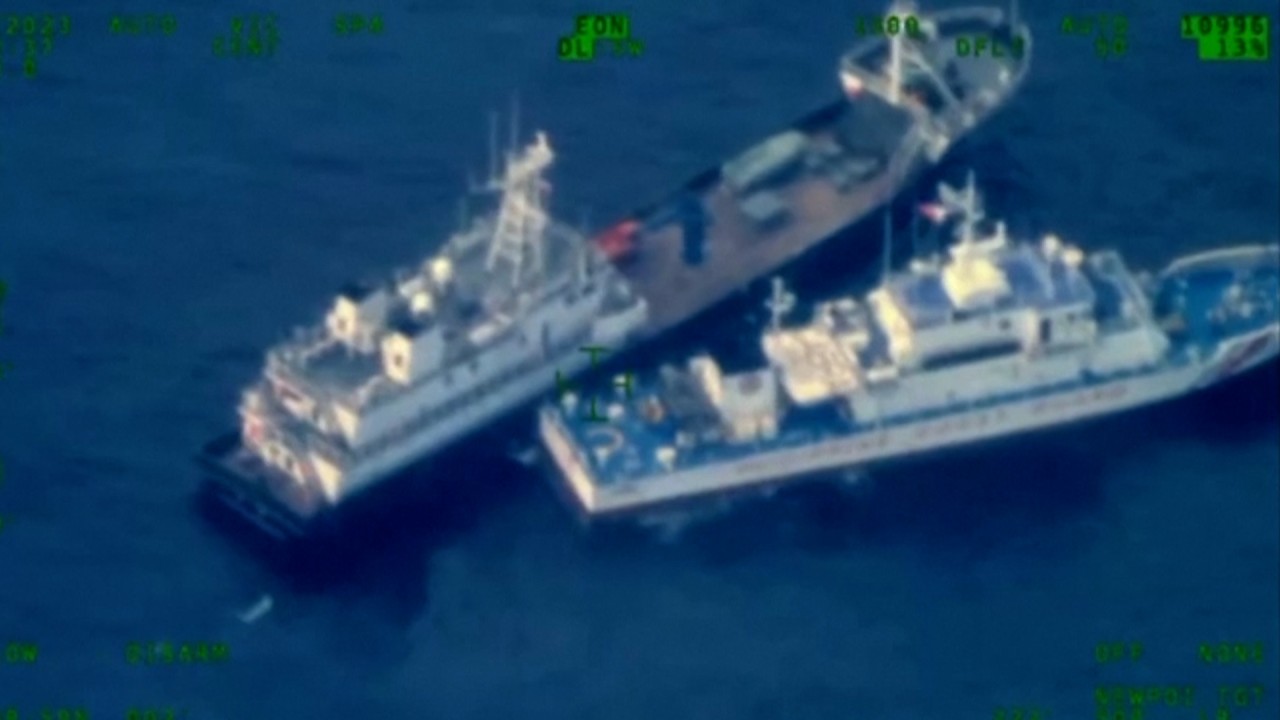
South China Sea: Philippines’ Marcos Jnr urges quick end to probe into ‘dangerous’ collision with Chinese vessel
- Probe of the collision between a Chinese Coast Guard ship and Philippines resupply boat is expected to be completed in five days
- Marcos Jnr’s urging comes amid growing debate over whether Manila should invoke a US-backed defence pact to protect its territory in the disputed waterway
Marcos told his security chiefs during a meeting to discuss last Sunday’s maritime incident that the issue was being given serious weight by the highest level of government.

Newly appointed Philippine coastguard chief Admiral Ronnie Gil Gavan said the probe is expected to be completed in five days.
“We’ll be submitting the report of our investigation through our department, the department of transportation, to the president for final disposition,” Gavan said after attending the meeting convened by Marcos.
The Southeast Asian nation accused Chinese coastguard vessels of “intentionally” colliding with its boats on a resupply mission to Second Thomas Shoal, where a handful of Philippine troops are stationed on a rusty warship.
Beijing rejected that assertion, saying the Philippine boats “bumped dangerously” with the coastguard vessels.
Both sides also upped the diplomatic ante over the latest confrontation.
The Department of Foreign Affairs (DFA) on Monday summoned the Chinese ambassador to the Philippines to condemn the incident, while China’s embassy in Manila called on the country to stop “causing trouble and provocation” at sea.
US National Security Adviser Jake Sullivan, in a call with his Philippine counterpart Eduardo Ano on Monday, described China’s actions as “dangerous and unlawful”.
China’s foreign ministry rebuked Washington for “blatantly emboldening” Manila’s act of infringing upon Beijing’s sovereignty.

As the blame game continues over the fracas on the high seas, the Philippines said the possibility of triggering the security agreement, which marked its 72nd anniversary in August, to tackle China’s aggressive tactics needed more discussion.
“The MDT is invoked when there is an armed attack. The incident that happened is aggressive and dangerous,” DFA spokesperson Teresita Daza said. “But at this point, whether it will constitute an armed attack that would allow the invoking of MDT is something that needs to be studied.”
Jonathan Malaya, assistant director general of the National Security Council, also said it was “not yet timely” to invoke the accord as it can only be done so in cases of attack on a public vessel, the Philippine Daily Inquirer reported.
Article IV of the treaty states that “an armed attack in the Pacific, including anywhere in the South China Sea, on either of their public vessels, aircraft, or armed forces – which includes their coastguards – would invoke mutual defence commitments”.
Philippines defence chief calls for new alliances, navy revamp to counter China
Meanwhile, Philippine lawmakers urged the senate to speed up the passage of the proposed maritime zones law aimed at deterring incursions into the country’s coastal territory.
Solicitor General Menardo Guevarra said all countries would be required to comply with the legislation that is similar to the United Nations Convention on the Law of the Sea, which has been ratified by more than 100 states.
The coastguard added the rule would also help it clearly identify Manila’s maritime zones.
Beijing claims sovereignty over almost all the South China Sea – where the Philippines and several other nations have competing claims – and has rejected a 2016 international ruling on the territorial dispute in Manila’s favour.

